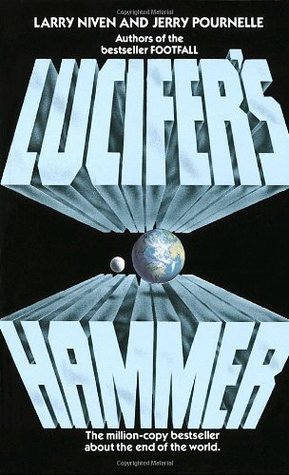
Footfall
Book Description
A colossal alien invasion looms as Earth’s survival hangs by a thread. As humanity grapples with the terrifying reality of an extraterrestrial force threatening their existence, alliances fracture, and desperation mounts. Grounded in science and raw emotion, "Footfall" thrusts readers into a pulse-pounding battle for survival where military strategies clash with human resilience. Friendships are tested, and values are challenged in a world spiraling into chaos. Against this backdrop, can hope prevail when the end seems inevitable? What sacrifices will be made when the fate of Earth hangs in the balance?
Quick Book Summary
"Footfall" by Larry Niven and Jerry Pournelle is a gripping science fiction novel that chronicles Earth’s desperate struggle against an overwhelming alien invasion. The extraterrestrial Fithp, resembling intelligent elephants, arrive in a massive spacecraft, intent on conquering humanity with advanced technology and brutal efficiency. As the aliens unleash devastation from orbit, governments worldwide struggle to coordinate defenses, faced with sabotage, panic, and conflicting goals. Amid the chaos, scientists, military leaders, and civilians form uneasy alliances, seeking new strategies for survival. Across a landscape of shattered cities and threatened extinction, humanity’s ingenuity and resilience are put to the ultimate test. At its core, "Footfall" explores not just the tactics of interstellar war, but the determination, adaptability, and sacrifice necessary when the fate of the world hangs in the balance.
Summary of Key Ideas
Table of Contents
Human Resilience and Adaptability
The novel opens with the sudden arrival of the Fithp, an alien species determined to colonize Earth. Their intent is simple but chilling: subdue humanity and claim the planet as their own. Using overwhelming orbital firepower, the Fithp cripple global communications, devastate infrastructure, and sow panic in human society. Immediate responses from world governments prove inadequate as the aliens’ technological superiority becomes clear, and cities worldwide fall into chaos. Through the eyes of scientists, military officials, and civilians, the initial shock of invasion is rendered with brutal clarity, setting a tone of existential threat.
Alien Perspectives and Motives
Amid the unfolding catastrophe, the novel delves into the psychology and society of the Fithp themselves. Unlike monolithic villainy, the aliens are depicted as complex beings with social hierarchies, anxieties, and rationales for their conquest. The authors present chapters from the Fithp perspective, exploring their herd mentality, their logic behind waging war, and their fear of human unpredictability. This dual narrative enriches the story, revealing that the conflict is not just an external threat but a clash of deeply alien worldviews, each with its own values and limitations.
The Realities of War and Strategy
As humanity reels, political divisions, panic, and mistrust hamper coordinated resistance. Some factions attempt appeasement, while others advocate for all-out retaliation, highlighting how crisis exacerbates existing fractures. Relationships are tested as families are uprooted and friends separated. Despite these tensions, pockets of ingenuity and collaboration emerge, as scientists race to develop countermeasures, and military leaders devise bold, desperate strategies. The story highlights how trauma can catalyze both unity and disunity among individuals and nations alike.
Unity and Division in Crisis
A key focus is the escalation and adaptation of military and survival tactics. Human ingenuity is pitted against the aliens’ brutal weaponry and psychology. The narrative meticulously details the planning and execution of counterattacks, the development of new technologies, and the immense risks taken to strike back at the orbital invaders. The struggle is relentless and costly, emphasizing that victory comes not from overwhelming might, but from adaptability, courage, and a willingness to make the ultimate sacrifices.
Sacrifice for Survival
In the novel’s climax, personal and collective sacrifice becomes central. Characters face impossible choices, risking lives to turn the tide against the Fithp. Humanity’s capacity for hope and resilience, even in the face of near-certain extinction, stands as a core theme. Final victories are hard-won, with no easy resolution, underscoring the cost of survival and the enduring question of whether the qualities that make humanity vulnerable also make it unconquerable.
Download This Summary
Get a free PDF of this summary instantly — no email required.





